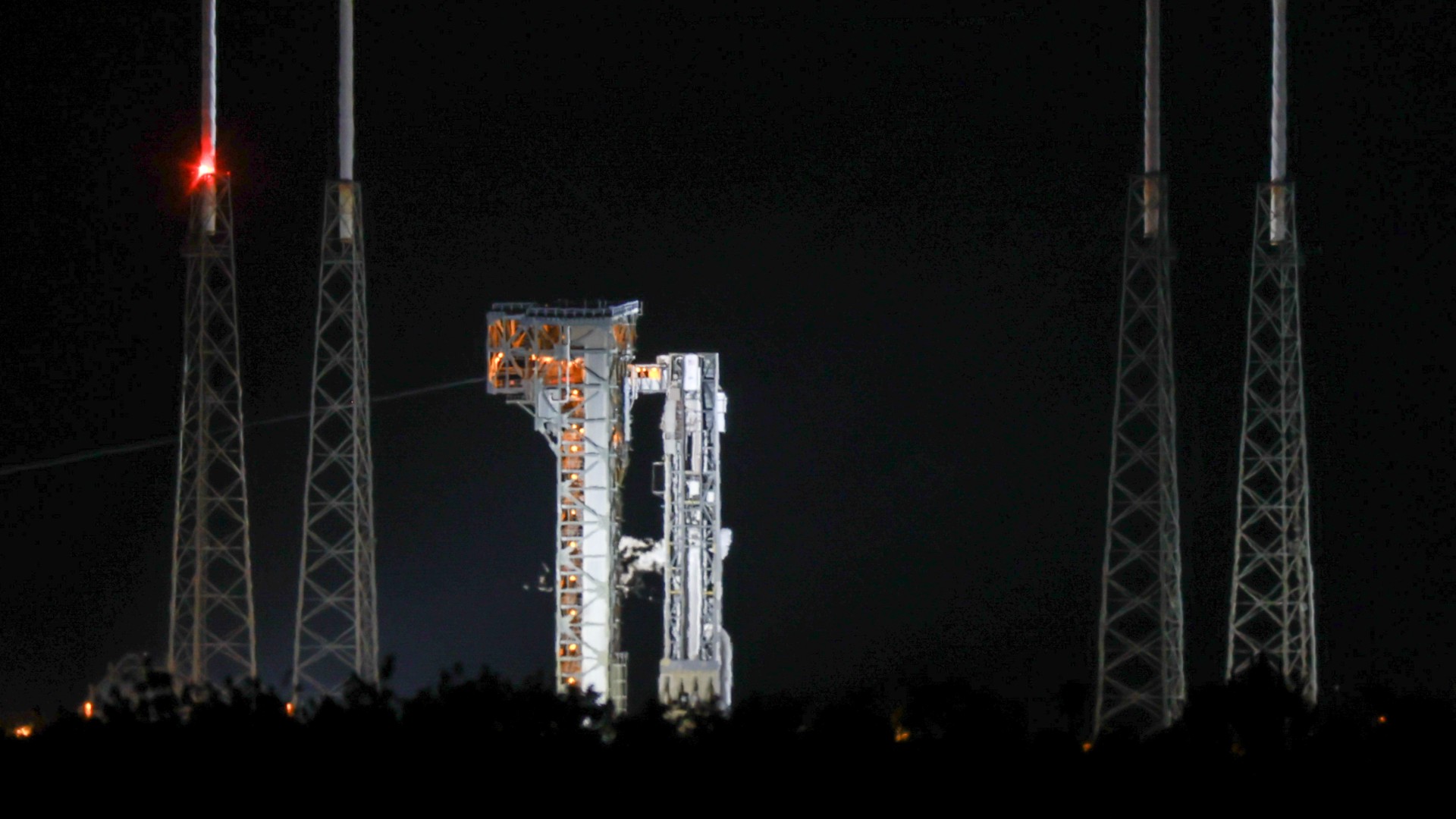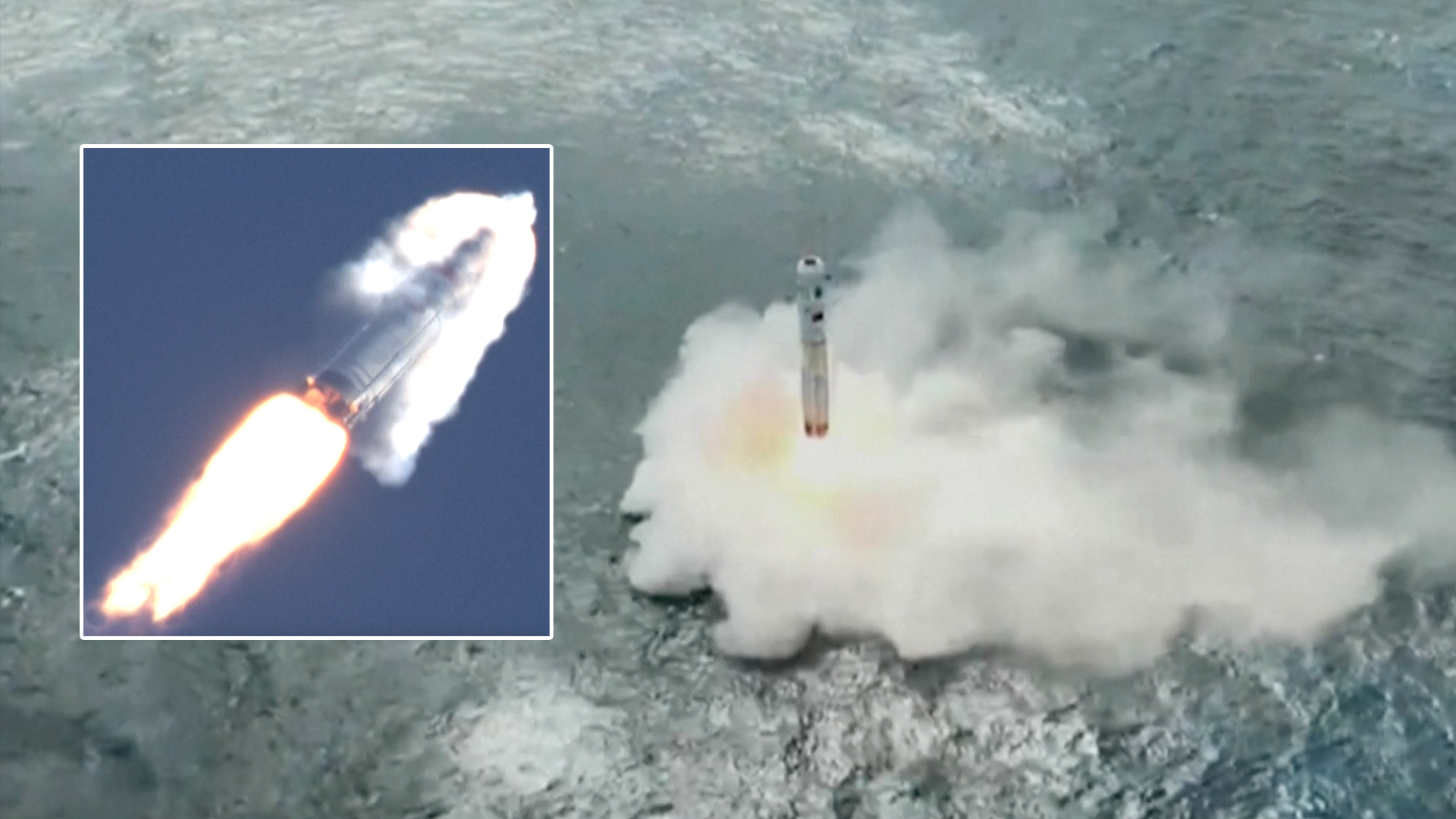Boeing Starliner's historic 1st astronaut launch delayed by Atlas V rocket issue
Friday (May 10) is the earliest possible launch date now.
Breaking space news, the latest updates on rocket launches, skywatching events and more!
You are now subscribed
Your newsletter sign-up was successful
Want to add more newsletters?

Delivered daily
Daily Newsletter
Breaking space news, the latest updates on rocket launches, skywatching events and more!

Once a month
Watch This Space
Sign up to our monthly entertainment newsletter to keep up with all our coverage of the latest sci-fi and space movies, tv shows, games and books.

Once a week
Night Sky This Week
Discover this week's must-see night sky events, moon phases, and stunning astrophotos. Sign up for our skywatching newsletter and explore the universe with us!

Twice a month
Strange New Words
Space.com's Sci-Fi Reader's Club. Read a sci-fi short story every month and join a virtual community of fellow science fiction fans!
CAPE CANAVERAL — Starliner will wait at least four more days for its first crewed launch.
Boeing's new commercial spacecraft, Starliner, waved off its first launch attempt late tonight (May 6) due to a problem with an "oxygen relief valve on the Centaur Stage on the Atlas V," NASA posted on X. Atlas V, the flight's rocket manufactured by United Launch Alliance, has flown missions since 2002 with a 100 percent success rate, but this is its first mission with astronauts.
"The engineering team has evaluated the vehicle is not in a configuration where we can proceed with flight today," an official in Mission Control said in a callout broadcast on NASA Television roughly two hours and one minute before the scheduled launch at 10:34 p.m. EDT (0024 GMT May 7).
Friday (May 10) is not the earliest possible launch target, according to NASA. When Starliner flies, you can watch the event here at Space.com, via NASA Television.
Once it goes to space, Starliner will carry its first astronaut crew to the International Space Station: Barry "Butch" Wilmore and Suni Williams. They are both former U.S. Navy test pilots as well as veteran International Space Station long-duration astronauts; their new Starliner mission is expected to spend about a week at the orbiting complex.
When Wilmore and Williams fly to space, they will be the first crew to do so from Cape Canaveral Space Force Station since Apollo 7 in 1968. They will also be the first humans to fly to space aboard an Atlas rocket since Gordon Cooper did so on Mercury-Atlas 9 in 1963.
Breaking space news, the latest updates on rocket launches, skywatching events and more!
NASA aims to have Starliner up and running for operational missions next year to meet its longstanding goal of sending two different spacecraft aloft from U.S. soil. The agency's other commercial crew vendor, SpaceX, has been sending crews to the ISS since its first test launch in 2020.
Space.com will provide further updates on the situation when NASA, Boeing or ULA issue them.
Editor's note: This story was updated at 2 a.m. EDT on May 7 with news of the new target launch date of May 10.

Elizabeth Howell (she/her), Ph.D., was a staff writer in the spaceflight channel between 2022 and 2024 specializing in Canadian space news. She was contributing writer for Space.com for 10 years from 2012 to 2024. Elizabeth's reporting includes multiple exclusives with the White House, leading world coverage about a lost-and-found space tomato on the International Space Station, witnessing five human spaceflight launches on two continents, flying parabolic, working inside a spacesuit, and participating in a simulated Mars mission. Her latest book, "Why Am I Taller?" (ECW Press, 2022) is co-written with astronaut Dave Williams.

